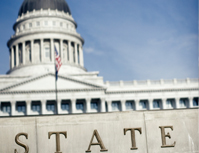Many federal and state laws relate in some way to privacy and the confidentiality of records. Highlighted here are those most likely to be relevant for schools and community agencies working on protocols for the appropriate sharing of information about children and youth. The Juvenile Law Center contributed to this section of the website.
The Family Educational Rights and Privacy Act (FERPA) of 1974 governs access to and release of education records by public and private schools that receive federal funding.






